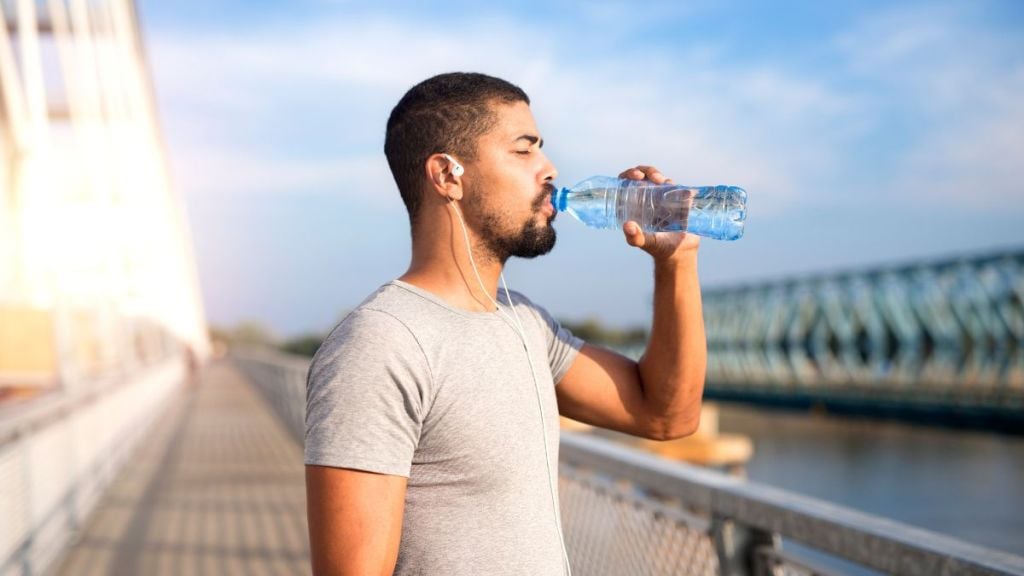Do you drink from a plastic water bottle almost daily? The harmless habit could be secretly lowering your immunity, and fuelling allergies, says a doctor.
People rely on the safety and convenience of bottled water worldwide, and according to Forbes, nearly 1 million plastic bottles are consumed every minute. Easy to carry and use, bottled water is emerging as a popular option among people. However, recently concerns are being raised around the safety of plastic bottles. According to studies, they can lead to the release of chemicals like bisphenol A (BPA) and phthalates that are known to be endocrine disruptors.
Reusing plastic water bottles or exposing them to heat or sunlight can lead to the release of harmful chemicals such as bisphenol A (BPA) and phthalates that can leach into the water and interfere with the body’s immune system.
“When plastic bottles are exposed to heat, sunlight, or reused multiple times, small amounts of chemicals such as bisphenol A (BPA) and phthalates can leach into the water. These substances are known as endocrine disruptors because they interfere with the body’s hormone system. Since hormones play a key role in regulating immunity, this disruption can weaken the body’s natural defense system over time,” says Dr Tushar Tayal, Consultant, Internal Medicine, CK Birla Hospital, Gurugram.
Studies have demonstrated how BPA even in small amounts, may alter how immune cells communicate and respond to infections.
“Similarly, phthalates have been linked to increased inflammation in the body. Chronic, low-grade inflammation is harmful because it keeps the immune system in a constant “alert” mode, which can eventually make it less efficient when a real infection strikes,” says Dr Tayal.
How plastic bottles can cause autoimmune diseases and allergies
“BPA, even in small amounts, may alter how immune cells communicate and respond to infections. This could lead to reduced ability to fight off viruses and bacteria, or, in some cases, trigger unnecessary immune activation that contributes to allergies or autoimmune problems,” explains Dr Tayal.
“Similarly, phthalates have been linked to increased inflammation in the body. Chronic, low-grade inflammation is harmful because it keeps the immune system in a constant “alert” mode, which can eventually make it less efficient when a real infection strikes,” he adds.
Threat of nanoplastics
In a study published in the Journal Proceedings of the National Academy of Sciences, researchers from Columbia University found that bottled water available in stores may contain 10 to 100 times more bits of plastic than previously estimated. These nanoparticles measure 1,000th the average width of a human hair, and aren’t even visible under a microscope.
The concern around their tiny size is that they may travel through the tissues to reach the digestive tract or lungs, distributing synthetic chemicals throughout the body and into cells.
The study found that a litre of water has an average of 240,000 plastic particles from seven types of plastics, of which 90% were identified as nanoplastics and the rest were microplastics, according to the study.
“Over time, tiny plastic particles break away from bottles and may end up in the water we drink. While research is still ongoing, early evidence suggests that microplastics can accumulate in the body and may stress the immune system, especially in the gut, where much of our immunity is based,” says Dr Tayal.
“This doesn’t mean one sip from a plastic bottle will harm you, but frequent use—especially when bottles are left in hot cars or reused for days—can increase exposure. Safer options include using stainless steel or glass bottles, which do not leach harmful chemicals. Small changes like these can help protect long-term immunity,” says the expert.


